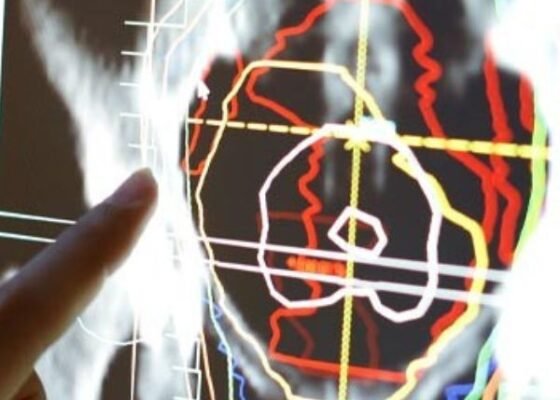What is Physiotherapy?
Physiotherapy, also commonly referred to as physical therapy, is a healthcare discipline that aims to alleviate pain, improve mobility, and enhance the overall well-being of individuals through various non-invasive techniques.
This branch of rehabilitative medicine emphasizes the significance of physical movement and functional abilities in the restoration, maintenance, and optimization of health.
In this article, we delve into the core concepts of physiotherapy, its benefits, and the diverse techniques employed by physiotherapists to help individuals regain their physical independence.
Physiotherapy, also commonly referred to as physical therapy, is a healthcare discipline that aims to alleviate pain, improve mobility, and enhance the overall well-being of individuals through various non-invasive techniques.
This branch of rehabilitative medicine emphasizes the significance of physical movement and functional abilities in the restoration, maintenance, and optimization of health.
In this article, we delve into the core concepts of physiotherapy, its benefits, and the diverse techniques employed by physiotherapists to help individuals regain their physical independence.
Understanding Physiotherapy
At its core, physiotherapy is a science-driven approach that focuses on preventing, managing, and treating a range of physical ailments, including musculoskeletal, neurological, and cardiopulmonary disorders. Physiotherapists are skilled healthcare professionals who assess, diagnose, and develop tailored treatment plans to enhance an individual’s quality of life.
Physiotherapy is rooted in the belief that physical movement and exercise are essential for maintaining good health and well-being. The therapeutic interventions employed in physiotherapy aim to restore, maintain, or improve an individual’s functional abilities, mobility, and overall quality of life.
The Scope of Physiotherapy
Physiotherapy encompasses a wide range of specialties and can be applied to individuals of all age groups. The scope of physiotherapy extends to:
Musculoskeletal physiotherapy: This specialty focuses on treating disorders related to muscles, bones, joints, and soft tissues, such as sprains, strains, and post-surgery rehabilitation.
Neurological physiotherapy: This area targets the rehabilitation of patients with neurological disorders, such as Parkinson’s disease, multiple sclerosis, and stroke.
Cardiopulmonary physiotherapy: This branch deals with the management of patients with cardiovascular and respiratory disorders, including heart attacks, chronic obstructive pulmonary disease (COPD), and asthma.
Pediatric physiotherapy: This specialization addresses the unique needs of infants, children, and adolescents, including developmental delays, cerebral palsy, and orthopedic conditions.
Geriatric physiotherapy: This area focuses on the specific challenges faced by older adults, such as age-related degenerative diseases, falls, and mobility issues.
Sports physiotherapy: This specialty is dedicated to preventing and treating sports-related injuries and enhancing athletic performance.
Techniques and Methods Employed in Physiotherapy
Physiotherapists use a variety of techniques and methods to facilitate recovery and enhance the physical abilities of their patients. Some common methods include:
Manual therapy: This involves hands-on techniques like joint mobilization, manipulation, and soft tissue massage to improve joint and muscle function.
Exercise therapy: Customized exercise programs are designed to improve strength, flexibility, and endurance, as well as restore and maintain functional abilities.
Electrotherapy: Techniques like transcutaneous electrical nerve stimulation (TENS) and ultrasound therapy are used to alleviate pain and promote healing.
Hydrotherapy: The therapeutic use of water, typically in pools, is employed to reduce pain, improve mobility, and increase strength.
Patient education: Physiotherapists educate patients about their conditions, self-management strategies, and injury prevention.
Top Physiotherapy Colleges in Bangalore Karnataka for Direct Admission
Karnataka, a prominent state in the southern region of India, is renowned for its quality education and diverse opportunities for students in the healthcare sector. The state boasts an array of esteemed physiotherapy colleges that offer comprehensive education and hands-on training to aspiring physiotherapists. In this article, we delve into the top physiotherapy colleges in Karnataka, highlighting their unique features and the programs they offer to help students make informed decisions about their academic future.
Top Physiotherapy Colleges in Karnataka
R.V. College of Physiotherapy, Bengaluru
Established in 2003, R.V. College of Physiotherapy is affiliated with Rajiv Gandhi University of Health Sciences (RGUHS) and is recognized by the Indian Association of Physiotherapists (IAP). The college offers a Bachelor of Physiotherapy (BPT) program and a Master of Physiotherapy (MPT) program, with specializations in Musculoskeletal Disorders, Neurological Disorders, Cardiopulmonary Disorders, and Community Rehabilitation. The state-of-the-art infrastructure, experienced faculty, and clinical exposure at affiliated hospitals make it one of the most sought-after physiotherapy colleges in Karnataka.
KLE Institute of Physiotherapy, Belgaum
Founded in 1994, the KLE Institute of Physiotherapy is a constituent unit of the KLE Academy of Higher Education and Research, Belgaum. It offers both BPT and MPT programs, with the latter covering various specializations such as Orthopedics, Neurology, Cardiothoracic, and Pediatric Physiotherapy. The college emphasizes evidence-based practice, research, and hands-on clinical experience; ensuring students receive a well-rounded education in the field of physiotherapy.
M.S. Ramaiah College of Physiotherapy, Bengaluru
Established in 1979, M.S. Ramaiah College of Physiotherapy is affiliated with RGUHS and recognized by the IAP. The college offers BPT and MPT programs, with MPT specializations in Orthopedics, Neurology, Cardiopulmonary, and Pediatric Physiotherapy. The college’s excellent academic environment, modern facilities, and collaborations with renowned hospitals provide students with an enriching educational experience.
Padmashree Institute of Physiotherapy, Bengaluru
Padmashree Institute of Physiotherapy, established in 1996, is affiliated with RGUHS and recognized by the IAP. The institute provides BPT and MPT courses, with MPT specializations in Orthopedics, Neurology, Cardiothoracic, and Pediatric Physiotherapy. The college focuses on innovative teaching methods, practical exposure, and research opportunities, making it an ideal choice for students pursuing a career in physiotherapy.
Nitte Institute of Physiotherapy, Mangalore
Nitte Institute of Physiotherapy, established in 1997, is a constituent college of Nitte University and is recognized by the IAP. The college offers BPT and MPT programs, with MPT specializations in Musculoskeletal Disorders, Neurological Disorders, Cardiopulmonary Disorders, and Community Rehabilitation. With its state-of-the-art facilities, dedicated faculty, and strong research focus, the college is well-regarded among physiotherapy institutions in Karnataka.
What students study in Physiotherapy courses and take direct admission?
Physiotherapy is an evolving healthcare discipline that aims to improve the physical well-being and mobility of individuals by employing evidence-based techniques and interventions. Students who pursue physiotherapy as a career embark on an educational journey that encompasses a comprehensive understanding of human anatomy, physiology, and various therapeutic techniques. In this article, we explore the subjects and skills students encounter in a physiotherapy course, providing a clear picture of their academic experience.
The Academic Landscape of Physiotherapy
Physiotherapy programs typically span four to six years, including both undergraduate and graduate studies. The curriculum is designed to equip students with the knowledge, skills, and clinical experience needed to excel as physiotherapy practitioners. Throughout the course, students cover a broad range of subjects that can be broadly classified into the following categories:
Foundational Sciences
These subjects form the backbone of physiotherapy education, providing students with a strong foundation in the basic sciences. Some key topics include:
Human anatomy: This subject covers the structure and organization of the human body, including bones, muscles, joints, and organs.
Physiology: Students learn about the functioning of various body systems, such as the respiratory, cardiovascular, and nervous systems.
Biomechanics: This subject explores the principles of mechanical forces and their impact on human movement and posture.
Pathophysiology: Students delve into the study of the disease processes, enabling them to understand the underlying causes of various disorders.
Physiotherapy-specific Subjects
These subjects introduce students to the core principles and techniques of physiotherapy, including:
Assessment and diagnosis: Students learn to perform comprehensive patient evaluations, identify impairments, and establish a working diagnosis.
Therapeutic modalities: This subject covers the various treatment techniques employed in physiotherapy, such as manual therapy, exercise prescription, and electrotherapy.
Rehabilitation: Students study the principles of rehabilitation and learn to develop tailored treatment plans to optimize functional outcomes.
Specialty areas: Students gain exposure to different physiotherapy specialties, such as sports physiotherapy, neurological rehabilitation, and geriatric care.
Clinical Skills and Experience
Hands-on clinical experience is a critical aspect of physiotherapy education, allowing students to apply theoretical knowledge in real-life settings. Components of clinical education include:
Clinical placements: Students complete supervised clinical placements in various healthcare settings, such as hospitals, rehabilitation centers, and private clinics.
Case studies: Students analyze and discuss real-life cases to enhance their problem-solving and clinical reasoning skills.
Practical skills training: Students practice essential skills, such as manual therapy techniques, exercise prescription, and patient communication, in a controlled learning environment.
Research and Evidence-based Practice
Physiotherapy education emphasizes the importance of research and evidence-based practice in informing clinical decision-making. Students learn to:
Critically appraise scientific literature: This skill enables students to evaluate the quality and relevance of research studies in their clinical practice.
Conduct research: Students may undertake research projects to contribute to the field of physiotherapy, enhancing their understanding of the scientific method and data analysis.
Apply evidence-based practice: Students learn to integrate the best available evidence with their clinical expertise and patient’s preferences to make informed treatment decisions.
Scope after Studying Physiotherapy
Graduating from a physiotherapy program unlocks a world of opportunities for students, allowing them to pursue rewarding careers in diverse healthcare settings. With a strong foundation in both theory and practice, physiotherapists are uniquely positioned to make a meaningful impact on the lives of individuals with various physical conditions. This article outlines the scope and potential career paths for physiotherapy graduates, highlighting the multifaceted nature of this dynamic profession.
The Expansive Scope of Physiotherapy
Physiotherapy is an ever-evolving discipline, encompassing a range of specialties and sub-specialties. This diversity enables graduates to find their niche in various sectors of healthcare, sports, and wellness. Some of the key areas in which physiotherapists can specialize include:
Musculoskeletal Physiotherapy: Graduates can work with patients suffering from acute or chronic musculoskeletal conditions, such as back pain, arthritis, and sports injuries, by providing targeted rehabilitation and pain management services.
Neurological Physiotherapy: Physiotherapists can specialize in the treatment and management of neurological disorders like stroke, multiple sclerosis, and Parkinson’s disease, helping patients regain mobility, independence, and overall quality of life.
Cardiopulmonary Physiotherapy: In this domain, physiotherapists work with patients who have cardiovascular or respiratory issues, such as heart failure, COPD, or asthma, to improve their functional capacity and enhance overall well-being.
Pediatric Physiotherapy: This specialty focuses on addressing the unique needs of children and adolescents, including developmental delays, neuromuscular disorders, and congenital conditions.
Geriatric Physiotherapy: Graduates can choose to work with older adults, helping them overcome age-related challenges, such as reduced mobility, balance issues, and degenerative diseases.
Sports Physiotherapy: In this sector, physiotherapists work with athletes to prevent, diagnose, and manage sports-related injuries while optimizing performance.
Diverse Career Opportunities for Physiotherapy Graduates
Physiotherapy graduates can explore various career paths, depending on their interests, skills, and professional goals. Some of the most popular career options include:
Clinical Practice: Physiotherapists can work in a range of clinical settings, such as hospitals, outpatient clinics, rehabilitation centers, and private practices, providing direct patient care.
Academia and Research: Graduates with a passion for teaching and research can pursue academic positions in universities and research institutions, helping to shape the future of physiotherapy education and practice.
Corporate Wellness Programs: Physiotherapists can find opportunities in the corporate sector, designing and implementing workplace wellness programs to promote employee health and prevent work-related injuries.
Community Health: Graduates can work in community-based organizations or public health agencies, providing physiotherapy services and promoting overall health and well-being at a population level.
Sports Teams and Organizations: Physiotherapists can work with sports teams, clubs, or national governing bodies, providing injury prevention, management, and performance enhancement services to athletes.
Entrepreneurship: Physiotherapy graduates can explore the option of starting their own private practice or wellness center, offering tailored physiotherapy services to meet the needs of their local community.
Placement opportunities after Studying Physiotherapy
The completion of a physiotherapy program not only equips graduates with the necessary knowledge and skills but also opens up a plethora of placement opportunities in diverse settings. As the demand for skilled physiotherapists continues to grow, graduates have numerous avenues to explore and establish successful careers. This article delves into the various placement opportunities available to physiotherapy graduates, shedding light on the abundant prospects in this ever-evolving profession.
Emerging Placement Opportunities for Physiotherapy Graduates
Hospitals and Rehabilitation Centers
Physiotherapists are an integral part of multi-disciplinary healthcare teams in hospitals and rehabilitation centers. They collaborate with physicians, nurses, and other healthcare professionals to deliver comprehensive care to patients with a wide range of physical conditions. In these settings, physiotherapists can work in specialized departments such as orthopedics, neurology, cardiology, or pediatrics, providing targeted interventions to optimize patient outcomes.
Outpatient Clinics and Private Practices
Outpatient clinics and private physiotherapy practices offer a diverse range of placement opportunities for graduates. Here, physiotherapists work with patients suffering from various musculoskeletal, neurological, and chronic conditions, providing personalized treatment plans to improve mobility, alleviate pain, and enhance overall well-being. Graduates can join established practices or eventually start their own clinics, catering to the unique needs of their local communities.
Home Healthcare Services
With the increasing demand for home-based care, physiotherapy graduates can find placement opportunities in home healthcare services. In this setting, physiotherapists visit patients in their homes, providing tailored interventions and rehabilitation programs to address their specific needs. This career path is ideal for those who prefer a more flexible work environment and seek to establish a strong rapport with their patients.
Sports Teams and Athletic Organizations
Physiotherapy graduates with an interest in sports and athletic performance can find placements with sports teams, clubs, or national governing bodies. In these roles, physiotherapists focus on injury prevention, diagnosis, and management, as well as performance optimization for athletes across various disciplines. Collaborating with coaches, trainers, and sports scientists, physiotherapists play a crucial role in supporting athletes’ long-term success.
Corporate and Occupational Health
Companies and organizations across industries increasingly recognize the importance of employee health and well-being. As a result, physiotherapy graduates can find placement opportunities in corporate and occupational health settings, designing and implementing workplace wellness programs. These programs aim to prevent work-related injuries, promote overall health, and enhance employee productivity.
Community Health and Non-profit Organizations
Physiotherapists can make a significant impact in community health settings, working with non-profit organizations, public health agencies, or specialized clinics to provide accessible physiotherapy services to underserved populations. In these roles, graduates have the opportunity to promote health equity, address the unique needs of diverse communities, and contribute to positive social change.
Research and Academia
Graduates with a passion for research and teaching can pursue placement opportunities in academic institutions and research centers. In these roles, physiotherapists can engage in cutting-edge research, contribute to the development of evidence-based practice guidelines, and shape the future of physiotherapy education.
Physiotherapy is a versatile healthcare discipline that offers diverse solutions for individuals facing physical challenges. By utilizing evidence-based techniques and a holistic approach, physiotherapists play a critical role in enhancing patients’ quality of life and overall well-being. Whether recovering from an injury or managing a chronic condition, physiotherapy offers the opportunity for individuals to regain their independence and live fulfilling lives.
Karnataka is home to some of the finest physiotherapy colleges in India, offering students a comprehensive education and practical experience in this dynamic healthcare discipline. By choosing to study at one of these top colleges, students can lay the foundation for a successful and rewarding career in physiotherapy.





